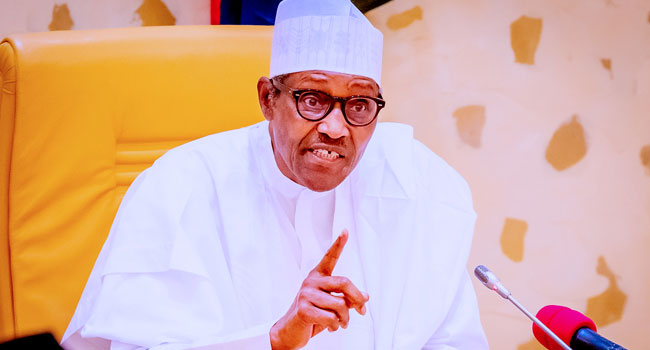ELECTORAL BILL: Buhari’s refusal to sign bill showed he benefitted from electoral fraud he complained about before 2015 – CISLAC

President Muhammadu Buhari
The Civil Society Legislative Advocacy Centre says the continued refusal of President Muhammadu Buhari to sign the Electoral Act Amendment Bill into law shows that the 79-year-old Daura-born retired major general likes and benefits from the current electoral system which he complained about in past elections before he won the 2015 presidential poll.
CISLAC Executive Director, Auwal Musa, stated this in a chat with The PUNCH on Tuesday.
The PUNCH had reported that the President, in a leaked letter to the Senate, asked the National Assembly to remove the controversial clause on direct primaries from the bill and return the proposed law to him for assent.
Buhari also cited insecurity as one of his reasons for withholding his assent to the bill for the second time.
The bill was transmitted to the President on November 19, 2021, after both chambers of the National Assembly hurriedly passed it against the wishes of the leadership of the All Progressives Congress.
Apart from mandatory direct primaries, the bill also makes a provision for electronic transmission of results by the Independent National Electoral Commission and increases the limit for election spending by candidates.
Speaking with The PUNCH on Tuesday, the CISLAC director (Musa) said, “Buhari has shown Nigerians that his previous claims of being a victim of electoral fraud is not true because this is his sixth year in office and since he resumed, he has not sent a single bill to the National Assembly to improve electoral transparency in Nigeria which means that he likes and benefits from the system he had complained about.
“Otherwise, this is the second time Buhari is shunning down moves by the National Assembly to improve electoral transparency based on popular demand.
“He (Buhari) complained in the past of being a victim of electoral fraud but his refusal six years after to improve and correct the electoral fraud means that he was not genuinely complaining about the electoral fraud because he wants the status quo to remain.”
Musa urged the 9th Assembly to forget about the President and override Buhari’s veto and pronounce the bill a law.
He said, “The National Assembly must draw the line here; they either go with the tiny beneficiary of electoral fraud or they go with the majority of Nigerians who want electoral transparent, who want their votes to count, who want smooth running of electoral process in Nigeria for them to have confidence in the system.
“The 9th Assembly must etch its name in gold in the right pages of our history by exercising its powers under S. 58 (5) of the Constitution of the Federal Republic of Nigeria 1999 (As Amended) which states that “Where the President withholds his assent and the bill is again passed by each House by two-thirds majority, the bill shall become law and the assent of the President shall not be required.”
The CISLAC director said taking this action to guarantee electoral transparency and confidence in the system would show the independence of the Ahmad Lawan-led Senate and the Femi Gbajabiamila-led House of Representatives.
Buhari, from Katsina State, was Nigeria’s head of state between December 1983 and August 1985 before his return as civilian President in May 2015, after he contested and failed to win presidential elections in 2003, 2007, and 2011.

